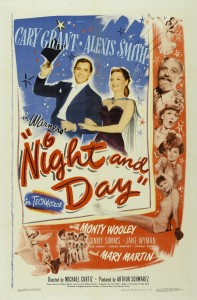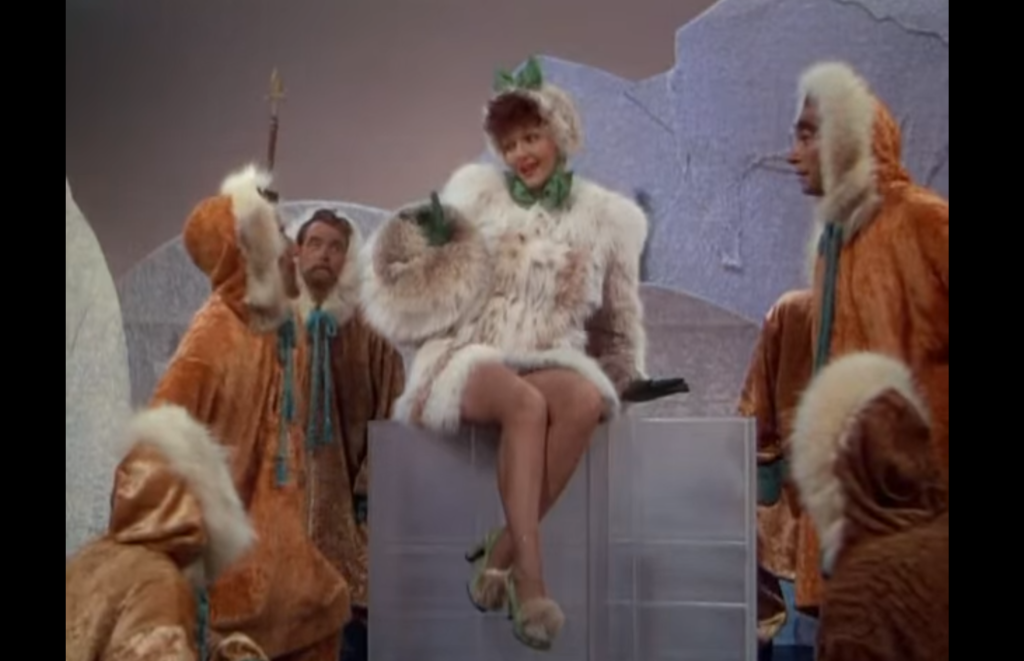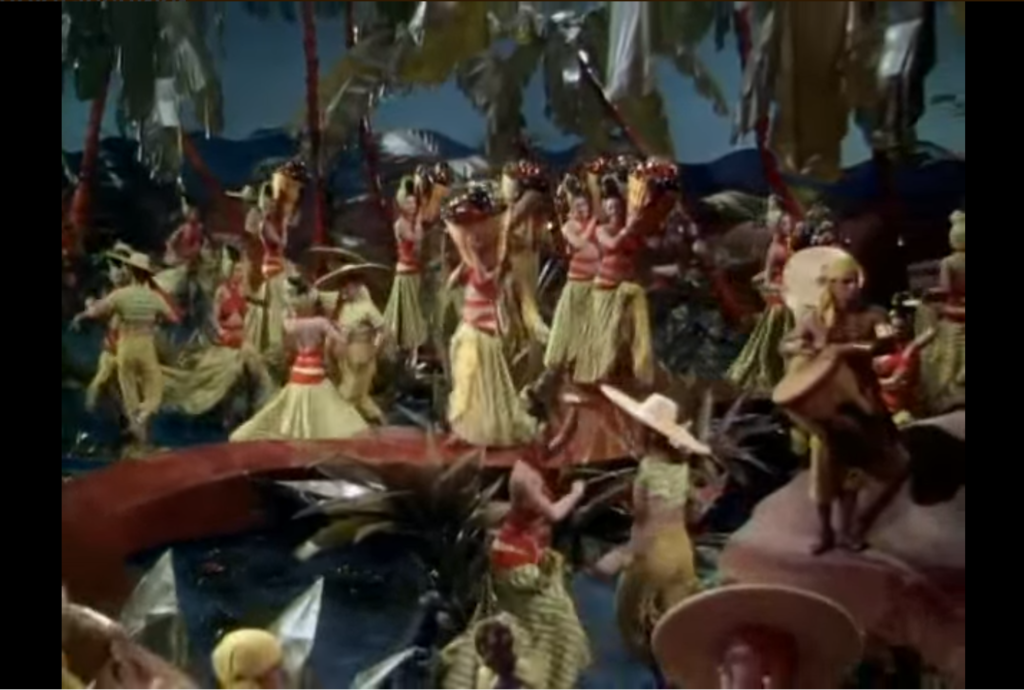“Night and day, you are the one…”
|

Synopsis:
With the help of his devoted wife (Alexis Smith) and friend (Monty Woolley), Cole Porter (Cary Grant) rises from obscurity to worldwide fame.
|
|
Genres, Themes, Actors, and Directors:
- Alan Hale Film
- Alexis Smith Films
- Biopics
- Cary Grant Films
- Composers
- Jane Wyman Films
- Marital Problems
- Michael Curtiz Films
- Monty Woolley Films
- Musicals
Review:
The plot of this notoriously fictionalized biopic (made while Porter was still alive) is, as noted in the DVD Verdict review (see link below), “little more than a clothesline on which the musical numbers hang.” Indeed, the narrative takes so many liberties with Porter’s life — incorrectly positing him as a war hero, and neglecting to mention his homosexuality — that one must choose simply to ignore the facts and enjoy the music. On the other hand, Grant — while still indubitably “Cary Grant” — does a fine job depicting Porter as someone who’s more interested in kissing his wife passionately on the cheek than on the lips, and who remains resolutely untempted by the bevy of adoring singers constantly surrounding him; if you read between the lines, hints are definitely there. Comparisons between this and the more recent “authentic” Porter biopic De-Lovely (starring Kevin Kline) are inevitable, but I must say I prefer the original — for my money, it’s much more effective at portraying the exuberance and joy Porter brought to the world through his inimitable, sophisticated musical style.
Redeeming Qualities and Moments:
- Many creatively staged renditions of Porter’s songs


Must See?
No, though it’s an enjoyable diversion.
Links:
|
One thought on “Night and Day (1946)”
A must – even if flawed in significant ways (mainly fabrication and often-pedestrian dialogue). It gets one major thing enjoyably right: the presentation of Cole Porter’s marvelous music. (The credits state the film is “based on the career of Cole Porter” – a personal life being a thing apart.)
If, as stated, you “read between the lines”, the essence of the ‘love story’ is clear: a portrait of removed man/motherly partner. Grant performs as if hoping the audience – in spite of the dialogue – will pick up the truth by osmosis. As well, Cole’s inability to consummate the relationship (Linda: “I hardly ever see you and, when I do, you’re so vague and preoccupied…”) speaks volumes. Cole pays so little attention to her throughout the film that the end makes little sense (save for the fact that, in the last scene, ‘Night and Day’ is being sung by an all-male chorus).
Certain moments remain particularly odd: i.e., Porter creating ‘Night and Day’ is a somewhat silly depiction of ‘inspiration’; Porter’s first show failing on opening night because of the Lusitania tragedy seems implausible – why, then, wouldn’t Broadway have closed down completely?
Still, the collection of Porter songs is sumptuous – none are performed badly, many are striking: esp. ‘You Do Something to Me,’ ‘What Is This Thing Called Love?’, ‘I’ve Got You Under My Skin,’ ‘Just One of Those Things’ (and esp. fun for gay audiences) ‘You’re the Top’ and ‘My Heart Belongs to Daddy’.
‘Night and Day’ remains superior to ‘De-Lovely’ – which, for all its earnestness, etc., is surprisingly forgettable.